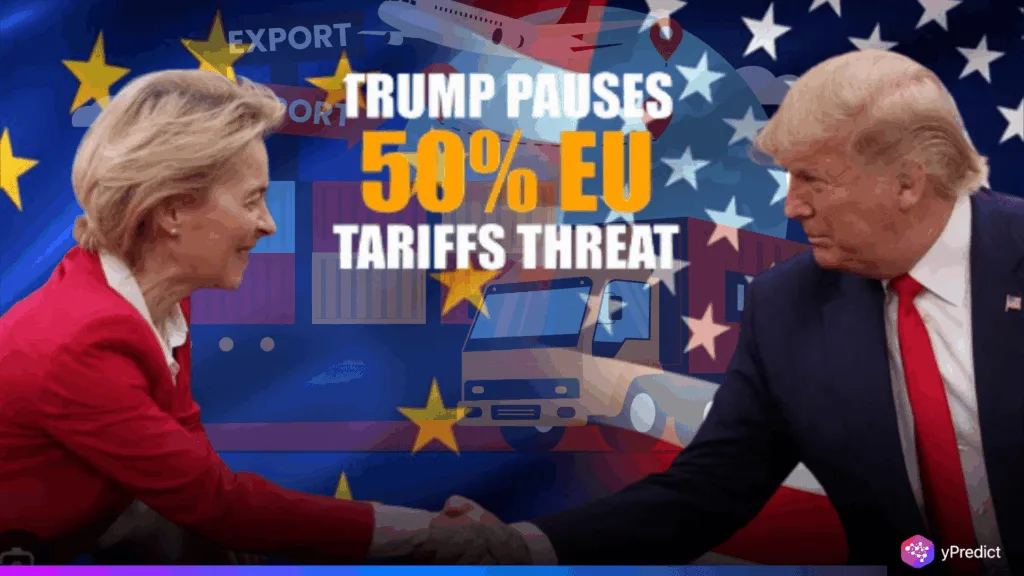
As the European Commission halts a series of retaliatory tariffs targeted at US exports, tensions over the US-EU trade relationship continue to rise. The decision was made on Monday and postpones the tariffs for six months. To allow the Trump administration to engage in trade negotiations. The US is also cutting tariffs in exchange for greater market access in Europe. However, European leaders said the tariff suspension could end at any time if the talks don’t work out.
Will the Tariff Suspension Hold Firm?
The European Union reconfirmed its plan to postpone implementing new tariffs on American goods. The tariff suspension is meant to give way to future talks. The announcement on Monday contributed to a 1% increase in major stock indices and a global improvement in investor sentiment. However, the EU offered no assurances. A spokesman emphasized that, contingent on U.S. decisions, the tariff suspension could be lifted “whenever needed.”
Is This US-EU Trade Truce Enough?
President Trump last week announced a deal that would see EU countries purchase $750 billion in U.S. energy exports and invest $600 billion in U.S. projects. The U.S. agreed to postpone duties on European industrial imports and reduce a planned 30% tariff to 15% in return.
Although no precise timeframe has been provided, negotiators from both sides are working to complete a joint statement. Regardless of progress, both countries remain firm on the consequences of reversing course. Separately, the US is increasing duties on other trading partners, such as India, for unlawful resales of Russian crude oil.
What Lies Ahead for US-EU Trade Ties?
Market sentiment over the next few months could be influenced by the poor US-EU free trade deal, market analysts have said. In addition, Brussels’ position is that it will not flinch from fighting back if the US reimposes its severe tariffs. The European Commission is also examining how future negotiations might minimize reliance on politically volatile free trade deals.
Analysts anticipate more structural changes in the event that tensions rise again. This short-term agreement may encounter new political obstacles as elections are approaching in the US and several EU countries. Therefore, any breakdown could spark a full-scale trade war again.
Can this Unstable Truce Survive Global Pressures
The US-EU trade dispute is still far from being settled, even with a pause in action. The EU threatened to respond if Washington does not fulfill its part of the bargain. Ongoing trade negotiations also rest on both countries’ ability to manage rising domestic political pressures and global tensions. In the meantime, companies are getting ready for both the best and the worst. The markets are quiet now, but the storm clouds are still there.







